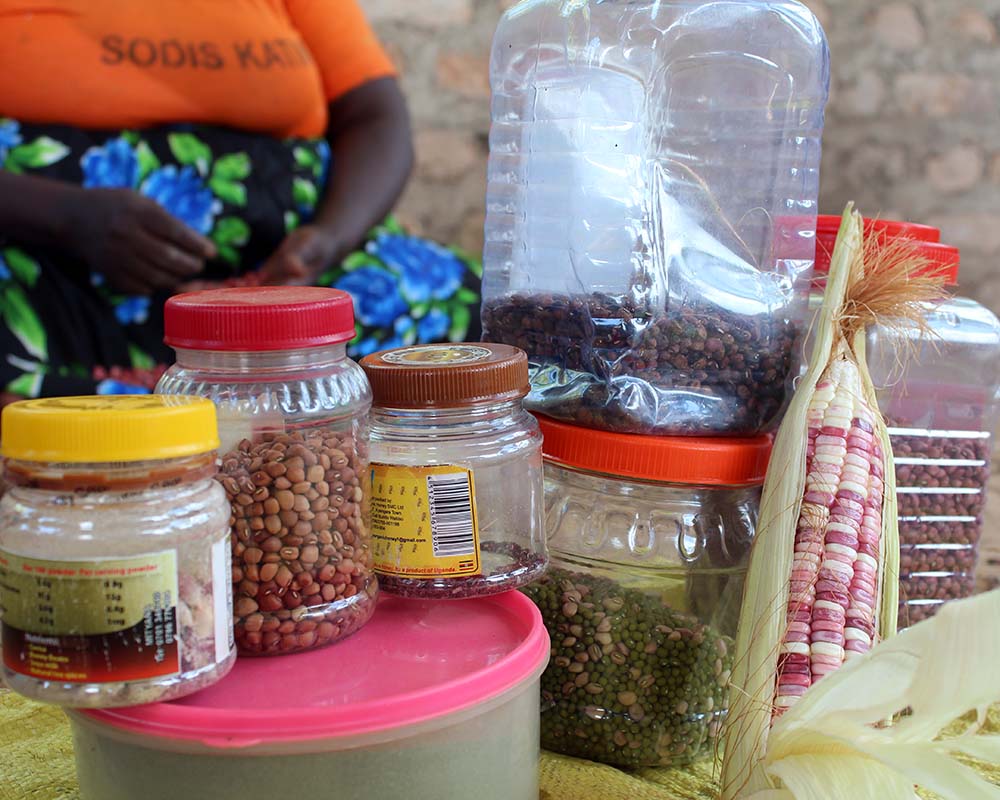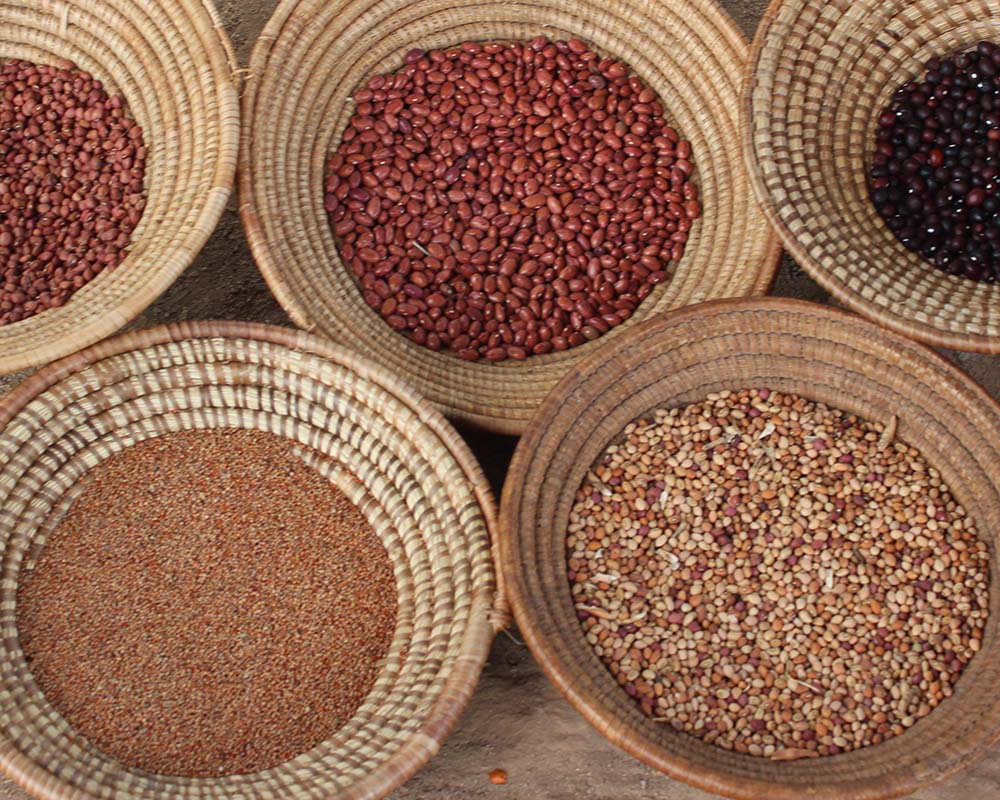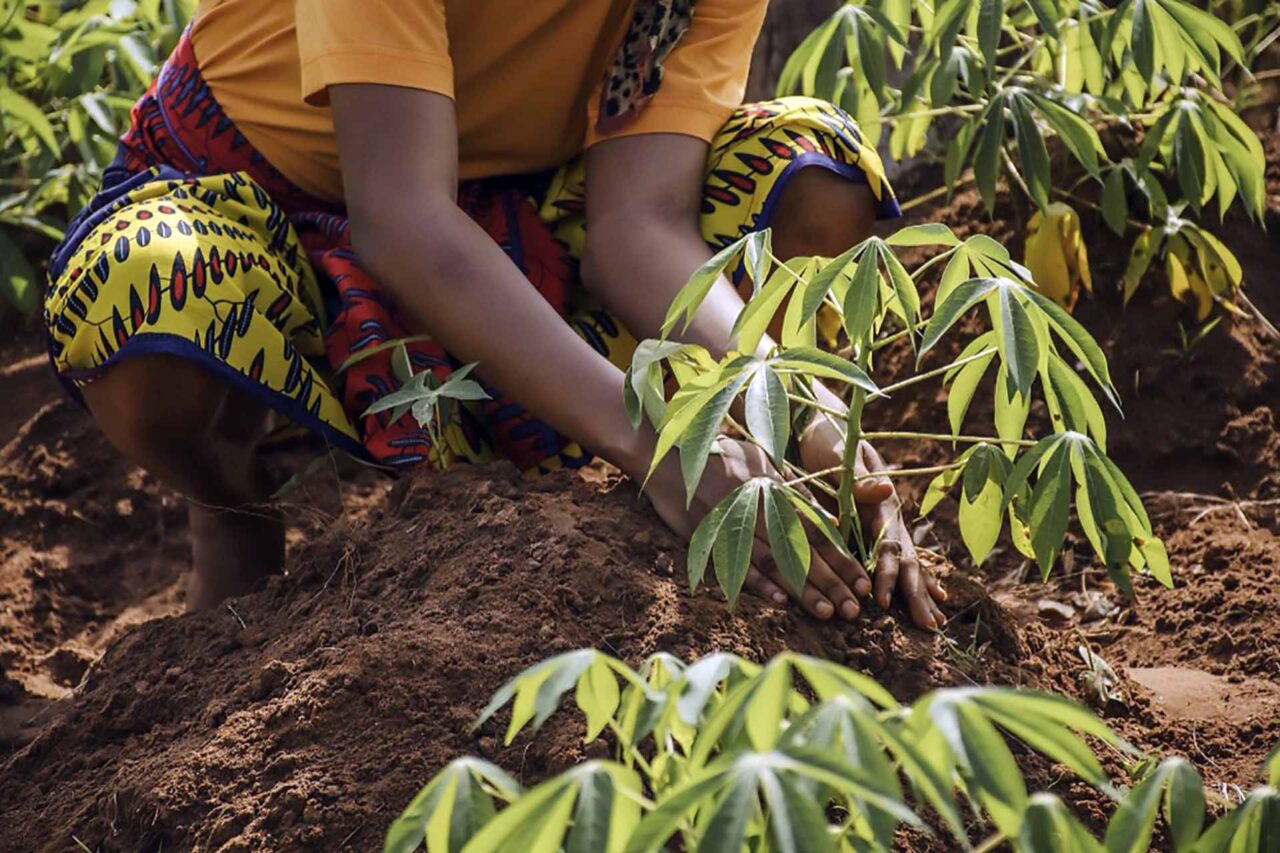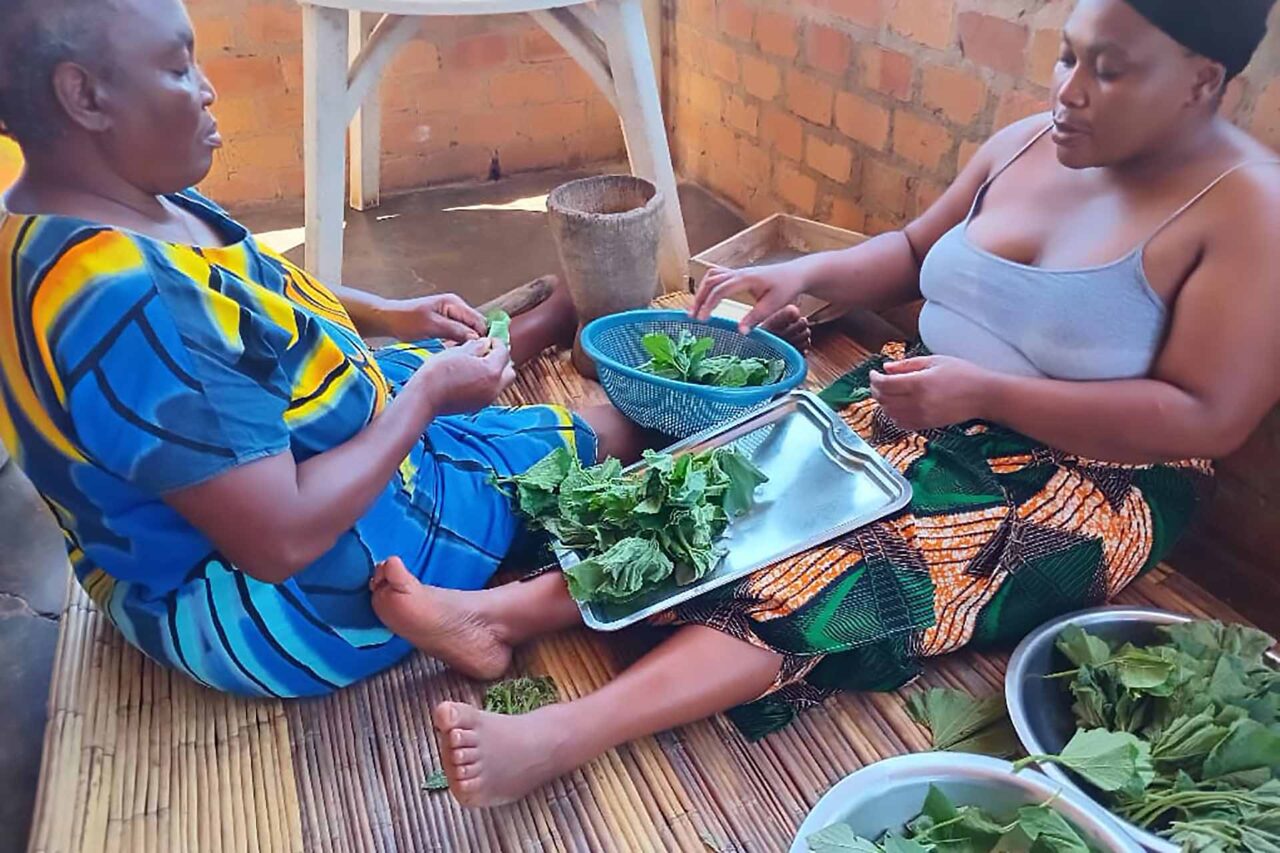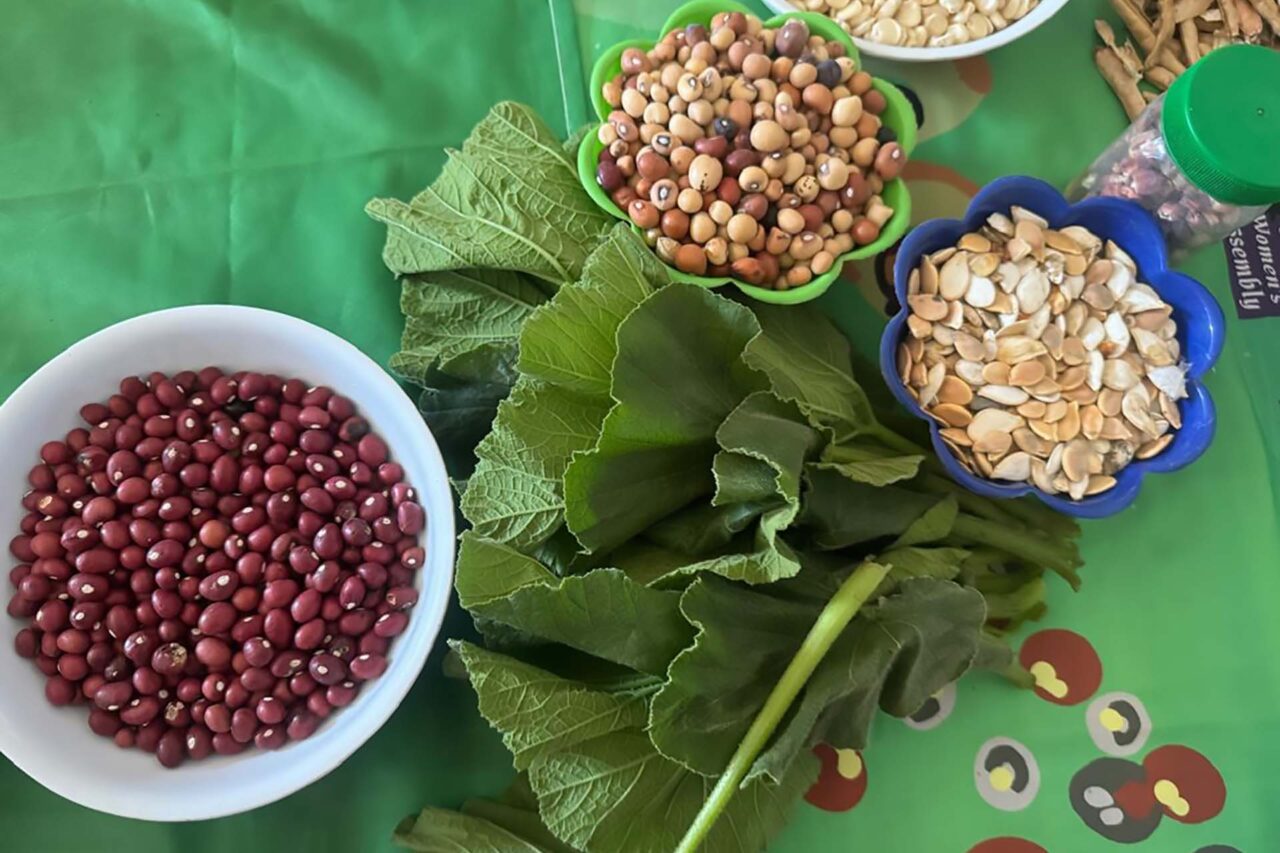A study conducted by the National Seed Policy indicates, “ Up to 85 percent of the seed that Ugandan farmers plant is through the informal sector.” Another report titled, “ Seed Security Assessment-April 2014,” by Food and Agriculture Organisation (FAO) stated that there is much concern about the quality of seed from most households since seed sourced was considered to be of good physical quality and yet produced fair yields in germination. It is from this backdrop that the women-led farmer group ensures to use locally cultivated farming practices to improve yields and store good seed for the next planting season. The women contribute greatly to a seed movement in their community through sharing good seed, seed selection, processing, marketing and enhancing seed security through seed banking practices.
Uganda
Our Seed for The Future
Women Farmers Use Seed to Create Wealth and Nourish Households
Introduction
The NAFI Project
Ugandan Women Farmers Contributing to Healthy Food Systems
The NAFI project located in Uganda’s Central Province in Mityana District, is an initiative implemented under the African Women’s Collaborative for Healthy Food systems.
The project aims at studying the nutritional and cultural value of eight selected foods such as amaranthus, cowpeas, millet, bambara nuts, local banana, local mangoes, and sweet potatoes.
With only six rural women farmers at the fore front under the East and Southern African Small-scale Farmers Forum (ESAFF), sustainable farming practices of crops locally grown agro ecologically have been embraced by both households and communities in Magongolo village, Mityana District.
The project aims at studying the nutritional and cultural value of eight selected foods such as amaranthus, cowpeas, millet, bambara nuts, local banana, local mangoes, and sweet potatoes.
With only six rural women farmers at the fore front under the East and Southern African Small-scale Farmers Forum (ESAFF), sustainable farming practices of crops locally grown agro ecologically have been embraced by both households and communities in Magongolo village, Mityana District.
Nutritional Value of Food Plants
Women are always at the forefront in improving and meeting their household nutritional needs. From seed selection, planting seed, weeding, harvesting, to preparation of meals, women play a crucial role in promoting healthy food systems. This they do ably with the aid of the males/spouses, children and grand-children or even the community at large by offering to them farm support in-terms of free farming land, farm labour, tools and marketing.
This theme highlights the role of women farmers as key players in transferring local knowledge on farming to their households. Some of the women farmers participating in the NAFI project demonstrate their journey in promoting food security for the future by involvement of their children in reasonable amounts of farm work.
The photos below, show that the strength of agroecological farming practices lies in learning, sharing knowledge and passing that knowledge down from older to younger generations. Additionally, it recognises the role of Ugandan women farmers in grooming children in their homesteads to actively participate in building the country’s nutrition and food sovereignty.
This theme highlights the role of women farmers as key players in transferring local knowledge on farming to their households. Some of the women farmers participating in the NAFI project demonstrate their journey in promoting food security for the future by involvement of their children in reasonable amounts of farm work.
The photos below, show that the strength of agroecological farming practices lies in learning, sharing knowledge and passing that knowledge down from older to younger generations. Additionally, it recognises the role of Ugandan women farmers in grooming children in their homesteads to actively participate in building the country’s nutrition and food sovereignty.
Our Seed for the Future!
Women famers lead the way by reviving indigenous farming practices ad preserving good seed for generations.
Photo credit: Hawa Ndagire


Seed Selection of Good Seed
While carefully selecting seed, the women look out for seed that can potentially yield good crops. They also engage in colour sorting in separation of different seed varieties grown by their ancestors to nourish households.
Photo credit: Daisy Nakirbira
Planting
The photo shows some of the women famers spacing he seeds during planting to achieve better crop yields.
Photo credit: ESAFF


Handling
Susan Nakate carefully plucks off a handful of vegetables by hand. It is discouraged to use a knife while harvesting leafy vegetables as this destroys the plant.
Photo credit: ESAFF
Hawa Ndagire harvests sweet potato by hand.
Photo credit: Esther Bridget Nakalya

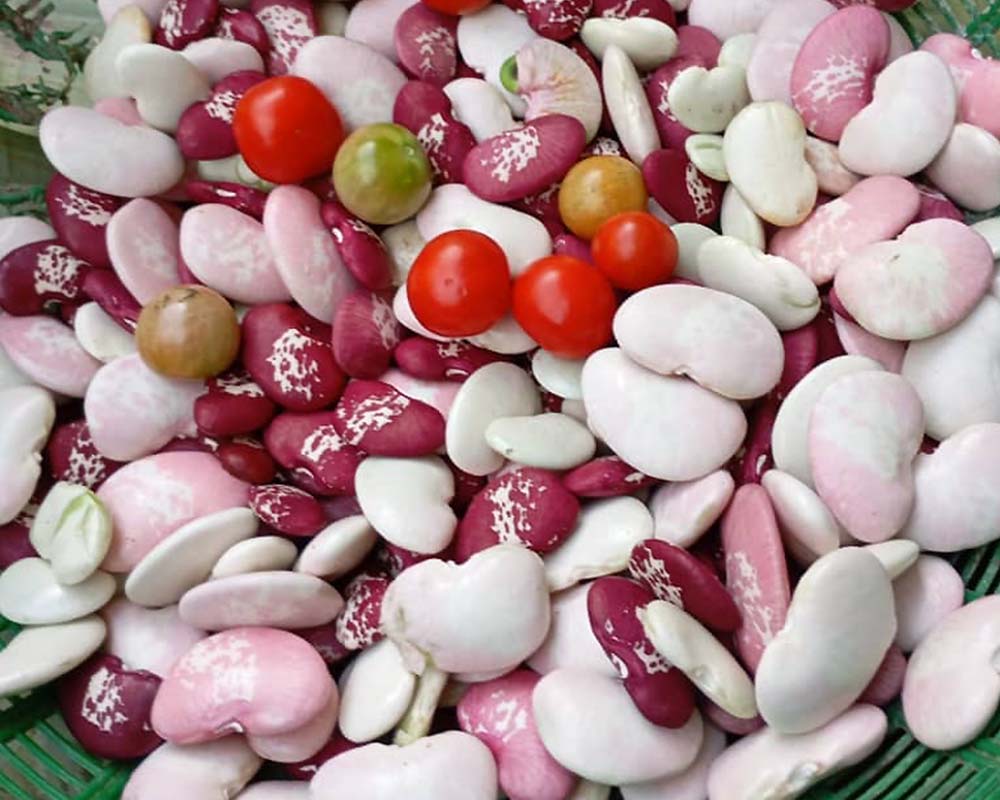
Sorting & Cleaning
In the photo, a handful of seed has been cleaned and put aside ready for preparation.
Photo credit: Daisy Nakirabira
Happy Farmers!
It is always a good day, when good seed is saved for the next planting season.The women farmers showcase their harvests to the community where they are involved in seed sharing, community seed schools and preserving seed varities grown by their fore fathers in seed banks.
Photo credit: Esther Bridget Nakalya
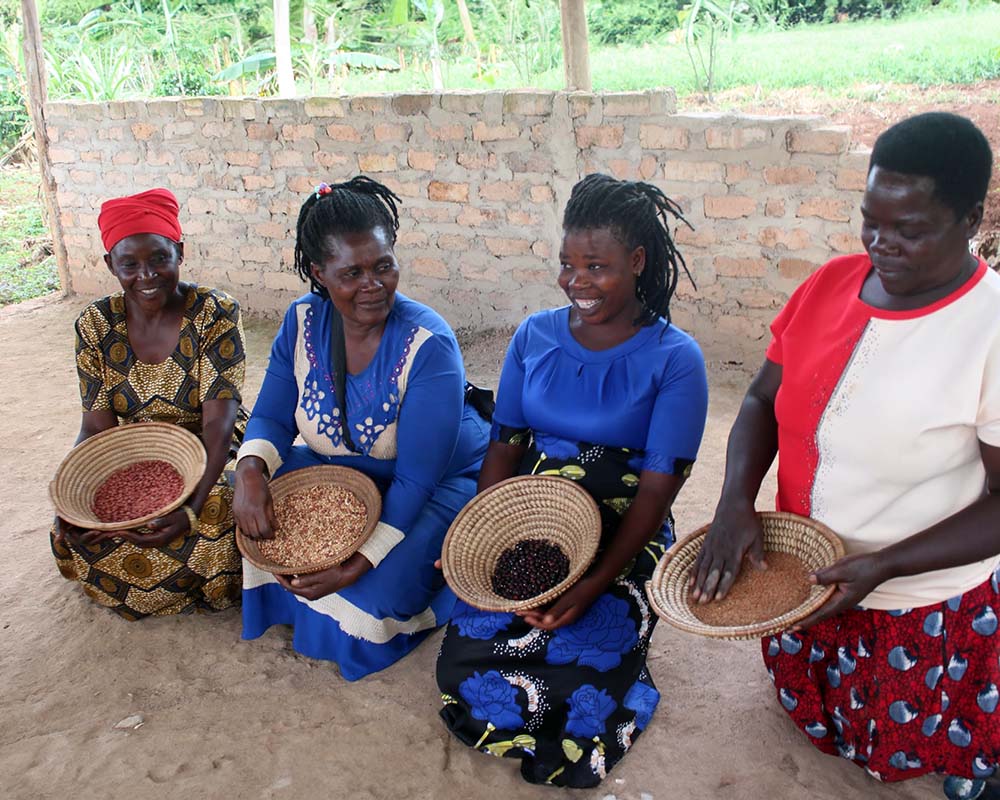
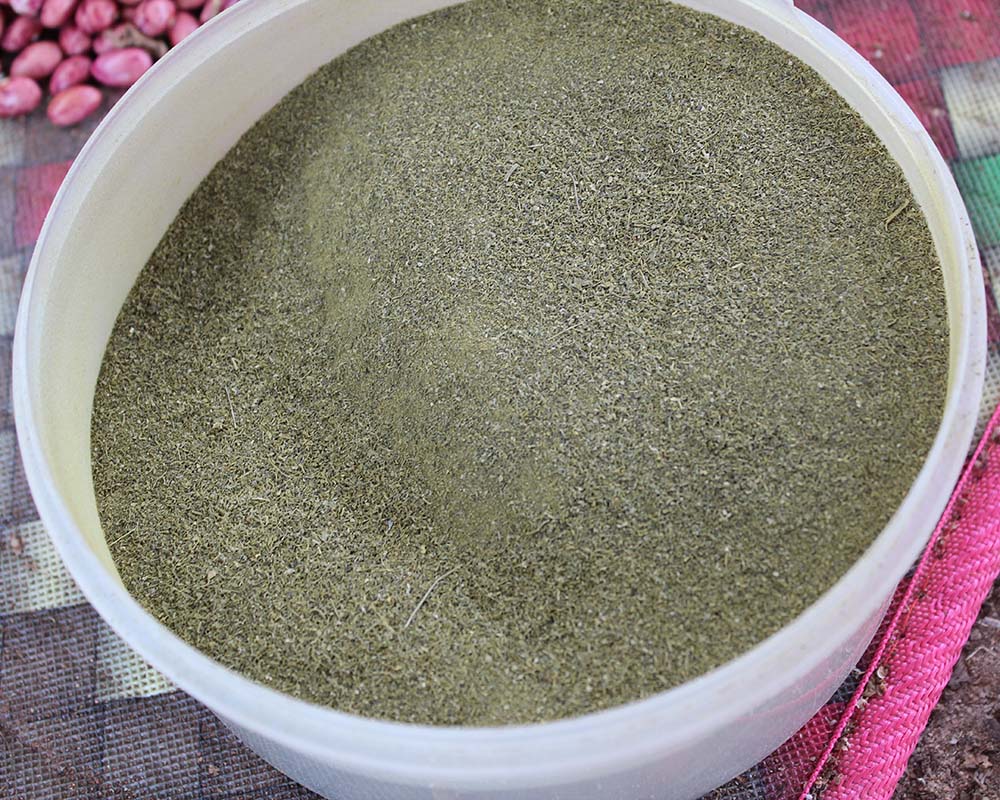
To Do Even More!
Value addition created to increase shelf life of vegetables and enable women in improving sales hence earn daily income.
The product is the end result of pounded soya bean leaves locally termed as “gobe”.
In preparation, the leaves are boiled, dried and pounded and either disolved in warm water and ready to eat or added in groundnut paste to add to a highly nutritious meal.
The product is the end result of pounded soya bean leaves locally termed as “gobe”.
In preparation, the leaves are boiled, dried and pounded and either disolved in warm water and ready to eat or added in groundnut paste to add to a highly nutritious meal.
Photo credit: Esther Bridget Nakalya
